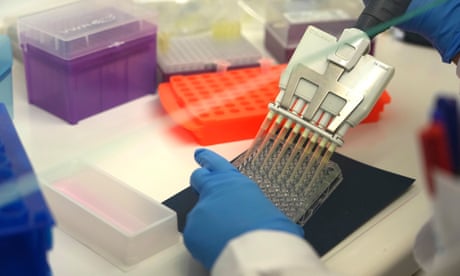- by foxnews
- 08 Apr 2025
Cancer researchers unable to access clinical trial data for top-selling drugs, study finds
Cancer researchers unable to access clinical trial data for top-selling drugs, study finds
- by theguardian
- 29 Jul 2022
- in news

The authors of a study published in the journal JAMA Oncology on Friday said the lack of transparency should be concerning to Australia.
Led by Flinders University, researchers audited 304 pharmaceutical company clinical trials that underpinned the US Food and Drugs Administration (FDA) approving 115 anticancer medicines over the past 10 years.
Just 136 of those trials (45%) had individual de-identified patient data available for sharing. Only 64 (21%) of the trials had the data publicly available, with the others requiring requests to the pharmaceutical company that could take months to be approved.
The leader of study, Natansh Modi, who is a PhD candidate in the clinical cancer epidemiology lab at Flinders University, said most of the participants in clinical trials are caucasian and male. But medicines can have different effects and efficacy depending on ethnicity, pregnancy, gender and other attributes.
In order to see how these often life-saving drugs affect people from different groups, data needs to be drawn from multiple similar studies of the drug to improve the overall sample size, and so stronger findings can be determined. These pooled studies are known as systematic reviews or meta-analyses.
Modi said the most common reason provided by pharmaceutical companies for the lack of transparency was that longterm follow-up data was still being collected.
Dr Ash Hopkins, a senior author of the study, said of the top-selling anticancer medicines, nivolumab, pembrolizumab and pomalidomide had the lowest transparency, with data shared from less than 10% of trials for those drugs.
In 2014, the Pharmaceutical Research and Manufacturers of America and the European Federation of Pharmaceutical Industries and Associations acknowledged the importance of data sharing and endorsed a commitment to sharing anonymised trial data for approved medicines upon request by qualified researchers.
Hopkins said renewed pressure needed to be placed on pharmaceutical companies and drugs regulators to help restore public confidence in evidence-based medicine.
- by foxnews
- descember 09, 2016
Ancient settlement reveals remains of 1,800-year-old dog, baffling experts: 'Preserved quite well'
Archaeologists have recently unearthed the remarkably well-preserved remains of a dog from ancient Rome, shedding light on the widespread practice of ritual sacrifice in antiquity.
read more


